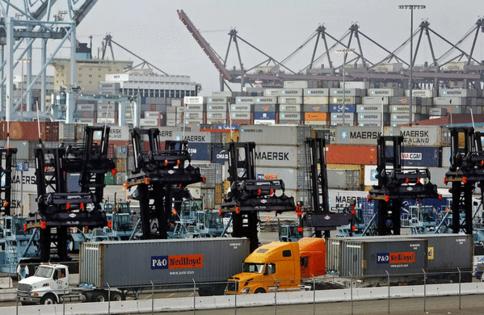Commentary: America needs to retake Econ 101
Published in Op Eds
Exit polling suggests that the dominating issue for voters in the presidential election was the economy. Americans can barely afford groceries, rent and child care. Voters perceived President-elect Donald Trump and Republicans to be more capable of addressing the woes of inflation and globalization, but Democrats have been hawking a similar message.
Politicians of all stripes need to move away from selling voters the false promise that they have control over inflation and globalization. Washington does have the power to make positive changes for working families, though. As one party is about to control Congress and the White House, this would be a great moment for lawmakers to brush up on how markets work and what the federal government can do to mitigate stagnant wages and market failures, support working families, and subsidize the construction of new housing.
As voters, it is also our job to learn some basic economics, at least enough to understand supply and demand for housing; the effect of tariffs, taxes and subsidies as tools; and the causes of inflation.
Our whole country would benefit from a refresher course. Luckily, some class equivalent to Principles of Economics is offered on every college campus, including at your local community college.
If you sat in, you’d be reminded that inflation is a rise in across-the-board prices that, in turn, reduces the value of the dollar. The primary policy levers on inflation are the money supply and interest rates. The Federal Reserve Bank, our independent central bank, manages these factors based on oodles of data on prices, employment, trade, capital inflows, credit and financial assets, all of which can lead to a rate cut like the one recently announced. No one at the Fed is aiming for 0% inflation; they’d like to stay near 2% annually, and they know that deflation would be far more painful than inflation. This means prices are very unlikely to “go back” to what they used to be. Instead, we want the government to use the policy levers to financially support working families in their ability to afford current prices.
The real economic pain of inflation comes when wages and benefits don’t respond to the changing value of the dollar the way that our groceries, rent and child care costs have.
There are economic policies to help with this. They are not tariffs, deregulation or deportations. Tariffs, which are taxes on imported goods, will increase prices on most goods and likely worsen inflation. Deregulation removes the guard rails around a functioning market and leaves room for monopolies to exert their market power at the expense of consumers (again, increasing prices). Mass deportations would leave enormous holes in the labor market, crushing business productivity.
The economic policies that help regular Americans afford daily expenses are not those that distort the private sector, but those that do the job of the public sector. When the economy changes because prices rise, wages stagnate or globalization changes the demand for a particular skill set, it is the job of the executive and legislative branches to use taxes and subsidies to mitigate, incentivize, retrain and regulate. Some of these policies include:
--Expanding the earned income tax credit. Currently the best anti-poverty program that we have in the U.S., and it has bipartisan support. A program for low-income families to move up the career ladder.
--Expanding the child tax credit. Effectively a small universal basic income for parents.
--Building a lot more housing units (3 million would be great). Increasing the (currently insufficient, in many cities) supply of housing decreases the overall price of housing.
--Subsidizing child care. As a good with large positive externalities (parents can work and contribute to the economy, kids do better when they get to school), child care would most efficiently be supplied as a type of public good, like highways and libraries. Goods with large positive externalities are not well allocated in unregulated markets. Millions of Americans know the state of child care today, with demand seriously outstripping supply. For my baby due Dec. 4, I’m 51st on a day care’s waitlist.
Supply and demand, taxes and subsidies, inflation and money supply, government regulation, trade — voters who have a passing acquaintance with these would have agreed with the 23 Nobel-winning economists who wrote a joint letter indicating that Vice President Kamala Harris’ economic plan would “be vastly superior to the counterproductive economic agenda of Donald Trump.”
And it shouldn’t take an economist to recognize when a policy promise makes no sense, like the idea of U.S.-imposed tariffs somehow benefiting Americans.
These concepts are key to evaluating candidates and choosing one who offers more than false hope, isolationism and scapegoats. American voters could benefit from learning a few of the principles of economics, perhaps next time before we go to the polls.
This country has the largest economy and some of the finest economic minds in the world. I hope policymakers will listen to them.
____
Aine Seitz McCarthy is an associate professor of economics at Lewis & Clark College in Portland, Oregon.
©2024 Los Angeles Times. Visit at latimes.com. Distributed by Tribune Content Agency, LLC.




























































Comments